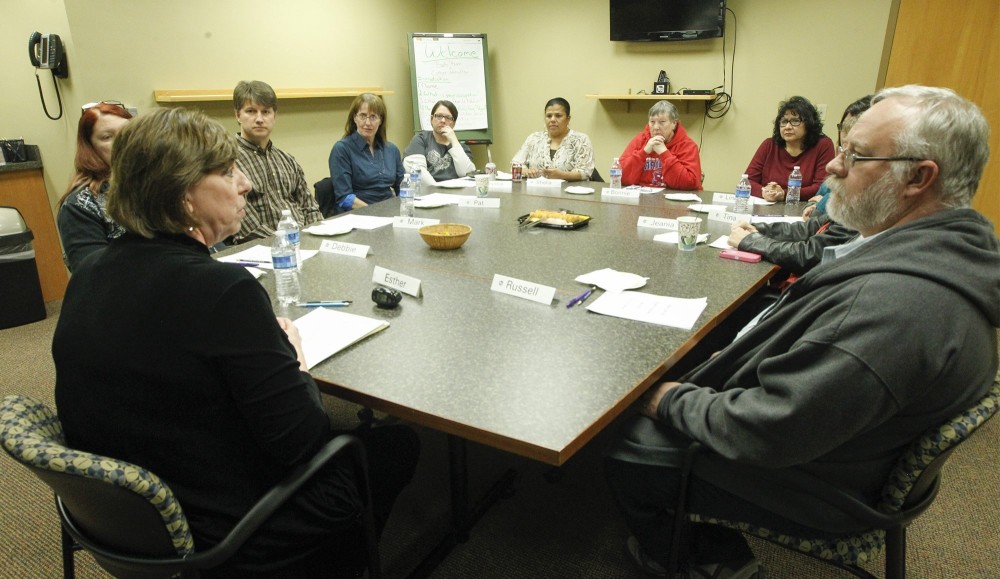By Tim Higgins
Bloomberg News.
WASHINGTON
Just after a memorial service for their young CEO, Dave Goldberg, this year, SurveyMonkey executives had to deal with more shocking news without their chief to guide them. The results of their first big public push into political polling were in, long awaited by Goldberg, and they differed wildly from their competitors’.
The credibility of the company, which Goldberg, a high- profile Silicon Valley personality, had headed since 2009, was on the line. So was a bigger question: Could Silicon Valley crack the code for calling elections, an undertaking long dominated by major media and data companies, and one that has become less and less reliable in recent years?
“We were dressed in black from the memorial, and we said, ‘Do we do this?’ We do run a risk if we’re wrong, and what if we are?” said Bennett Porter, the head of SurveyMonkey marketing. “But we knew that we weren’t, and we knew that Dave would’ve wanted us to do it.”
SurveyMonkey’s executives went on a limb. They gave their predictions to The Washington Post, which published them the day of the election, showing the British Conservatives trouncing their Labour rivals. Other polls showed the race was close. The bet paid off: David Cameron was reconfirmed as prime minister with a sizable parliamentary majority.
The episode wasn’t just a triumph for SurveyMonkey. It was also a turning point for the polling industry, which has traditionally relied on calling thousands of homes until they reach enough people to stand up a statistical analysis.
SurveyMonkey’s strength comes in about 3 million people using its online do-it-yourself questionnaires each day for purposes as mundane as scheduling dinner meetings. Digital technology makes it easy for the company to tack political polling questions to the end of those surveys.
Meanwhile, technological advances have caused problems for traditional pollsters. With the advent of cellphones and near-universal caller ID, telephone surveys have become more expensive and less reliable. By the mid-1990s, the rate of people responding to telephone surveys had dropped to about 30 percent, from more than 80 percent. According to a 2012 Pew study, the rate continued to fall to less than 10 percent.
That’s pushed some of the established players away from classic horse-race polling. Gallup, which had Mitt Romney beating President Barack Obama in its final 2012 survey, last month announced that it wouldn’t do its signature polls for the 2016 presidential primaries. Instead, Gallup editor-in-chief Frank Newport said the organization will focus on surveying public opinion on specific issues.
After long rejecting online polls as a cheaper alternative, pollsters are thinking again, prompted by SurveyMonkey’s success.
“The field has had a significant change of attitude about this from one of ‘no way’ to ‘well, let’s take a look,'” said Scott Keeter, director of survey research at Pew, who has been working with SurveyMonkey to better understand the differences with online polls.
SurveyMonkey’s business is getting people to pay for more sophisticated surveys, instead of just using the simpler free ones.
The company also gathers data for paying clients. A technology accessory company, for example, might pay SurveyMonkey to get feedback on its latest iPhone case design from female iPhone owners.
“There are customers who are doing very sophisticated, very time-sensitive market research and other data-gathering projects with our platform, but it’s not that widely known,” said Tim Maly, SurveyMonkey’s chief financial officer.
While the company doesn’t disclose its financial results, it raised $250 million in December, which reportedly put the company’s value at about $2 billion.
The company’s push into politics began in 2012, when executives noticed that the demographics of their users mirrored that of the broader U.S. population. They experimented with political polls and accurately predicted the winner of the 2012 presidential election. At the time, they weren’t sure why they were right, but it gave them hope that they could provide an alternative to the telephone polls that were failing.
For Goldberg, whose death at age 47 rocked Silicon Valley, solving that question was key. He wanted to expand SurveyMonkey’s market-research business. Key to that was establishing credibility for measuring public opinion. In Goldberg’s view, there was one way to do that: calling elections.
So, in 2014, Goldberg hired Jon Cohen, a former Washington Post pollster, to figure it out. Cohen quickly dived into the 2014 midterm elections but didn’t feel confident enough to widely broadcast his results before the elections. “Dave wanted to put out the midterm data, but he let me have my approach for one time,” Cohen said. Goldberg was clear, though. The next time, the British elections, would be different.
Rather than trying to cold-call respondents, SurveyMonkey chooses some people who are already filling out its surveys, such as one Cohen recently sent his family asking about their preferred Thanksgiving side dishes, to participate in political polls.
The company includes questions about age, race, gender and education level. Just as in telephone polls, Cohen’s team weights the responses to reflect the general voting population.
Critics say SurveyMonkey’s approach, and that of other online surveys, excludes people who either don’t or infrequently use the Internet.
buy priligy generic buy priligy online no prescription
“Not everyone is online,” said Cliff Zukin, a professor at Rutgers University who specializes in measuring public opinion in politics. “This is particularly problematic in voting studies, since it is the elderly who are the least likely to be online and the most likely to vote.”
Jonathan Mellon, a research fellow at the University of Oxford who is examining why most polls failed in the British election, said it’s too soon to tell whether this is the new frontier for polling.
“At the moment, we don’t know if they’re doing something different and it will consistently lead to the right results, or if it’s doing something different and it will just systematically have different results than everyone else, which sometimes might be better and sometimes might be worse,” Mellon said.
SurveyMonkey’s success in the British elections has helped the company. They partner with NBC News on polling. And this month, when The Los Angeles Times turned to the company for political polling, the newspaper citedSurveyMonkey’s success in Britain.
“One can effectively deliver telephone surveys today, but to do it well is extraordinarily expensive therefore the approach has become a luxury good and the need for good polling is such that we can’t afford to make it be a luxury item,” Cohen said. “The reality is that people are responding to surveys. We need to meet people where they are.”
SurveyMonkey is outgrowing its new corporate headquarters in Palo Alto, Calif. In October, the company hired Mark Blumenthal, a Democratic pollster who created the popular pollster.com blog, now owned by the Huffington Post.
















































































































































































































































































































































































